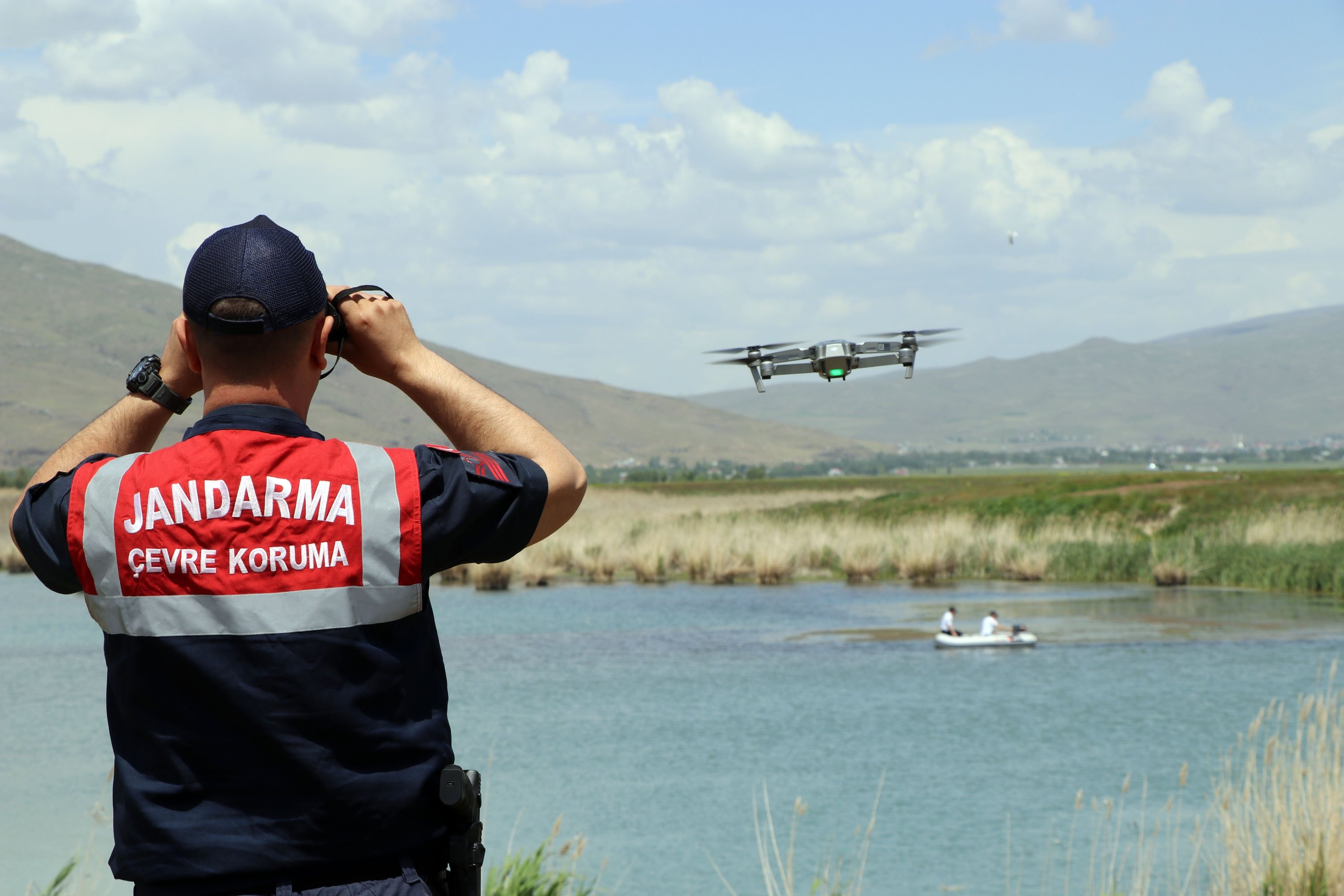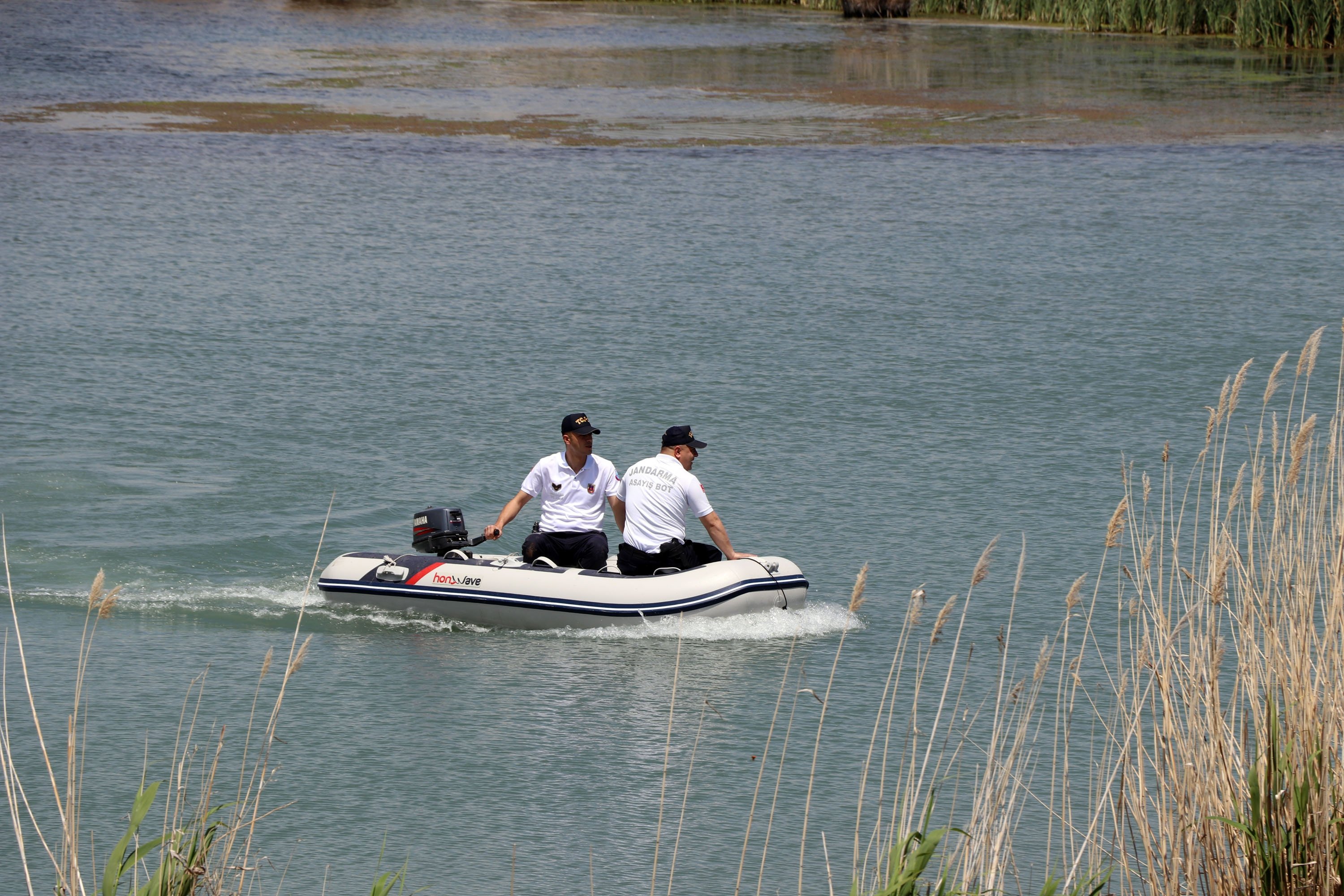© Turkuvaz Haberleşme ve Yayıncılık 2026
Efforts continue to protect the pearl mullet during their migratory and breeding journey, an endemic fish species found only in Lake Van in eastern Türkiye. The fish spawn from April 15 to July 15 and the race to produce healthy offspring to continue the species is a heated affair.
Relevant institutions and security forces have taken protection measures for the only fish species living in the highly carbonated water throughout the migration period both from the land and air, while inspecting the settlements by the lake to prevent poaching and immediately intervening in any problems they encounter.
Ferit Ayas, commander of the Alpaslan Gendarmerie Station, revealed a staggering decline of 90% in the number of fish entering the rivers since 2000. However, due to stringent measures, the pearl mullet population in Lake Van has experienced a remarkable resurgence, with approximately 50,000 tons estimated today.
The pearl mullet boasts a unique ability to swim against the current, adding a visual spectacle to its migratory journey. Recognizing the significance of preserving this species, authorities have enforced a three-month hunting ban as a protective measure.

The Provincial Directorate of Agriculture and Forestry, along with the police and municipal police teams, are actively supporting these conservation efforts. Accompanied by reporters from Demirören News Agency (DHA), the Environment, Nature, and Animal Protection unit under the Van Provincial Gendarmerie Command documented the one-day operation conducted by the Erciş Asayiş Boat Teams and the Muradiye District Gendarmerie Command. This joint effort involved meticulous inspections of the reeds in the Karahan region, a vital route for the migration of pearl mullets.
Over the past five years, authorities have intervened in 846 poaching incidents, resulting in the prosecution of 698 suspects and administrative fines amounting to TL 1,853,523 ($86,183). During these operations, authorities seized over 493 tons of pearl mullet, with 200 tons of them still alive. Furthermore, 67 vehicles involved in illegal activities were banned from traffic, while the captured live fish were released back into their natural habitats.
Coordination meetings, attended by the Van Provincial Gendarmerie Command, the Van Provincial/District Directorate of Agriculture and Forestry, the Provincial Police Department, the Yüzüncü Yıl University Faculty of Fisheries and the Coast Guard Van Group Command, are regularly held under the auspices of the governor's office and district governorships. These meetings ensure cohesive and collaborative efforts by all stakeholders involved in implementing the pearl mullet hunting ban decisions.

Scientifically known as "alburnus tarichi," and referred to as tarek, Van fish or "inci kefali" in Turkish, the pearl mullets face remarkable challenges in their habitat. The high salinity of the water impedes their reproduction in the largest soda/alkaline lake on Earth. Consequently, they migrate through the lake's tributaries to spawn. This transition poses a daunting task, as a sudden shift from salty to freshwater conditions can be fatal. The fish endure this adjustment period, with no food in sight and under constant threat from predators such as seagulls and water snakes, making their journey a treacherous one.
The collective efforts to protect and conserve the pearl mullet species in Lake Van emphasize the significance of preserving biodiversity and safeguarding the delicate ecological balance of the region. By implementing strict measures and fostering collaboration among various institutions, authorities are taking proactive steps to ensure the existence of this unique fish species.
